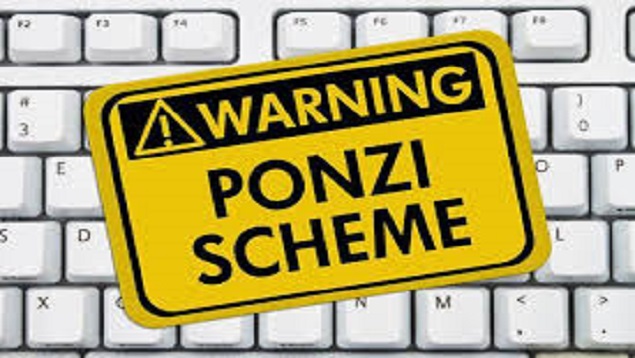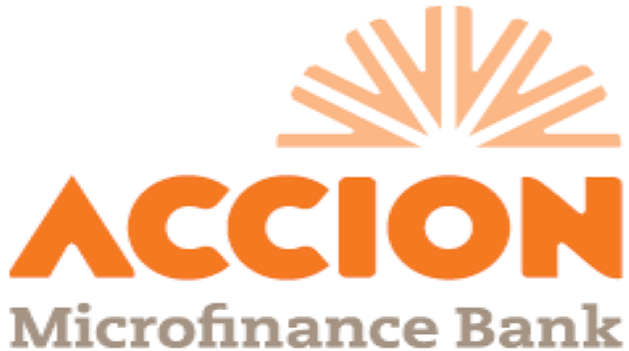E-Financial
What Does Sub-Zero Oil Mean for Nigeria’s Economic Outlook?

By Lukman Otunuga, Senior Research Analyst at FXTM,
April 20, 2020 will go down in the history books as the day when WTI crude futures expiring in May plunged more than 300 percent, falling as low as minus $40.32 per barrel amid COVID-19 pandemic lockdowns.
Utter chaos ensued after the US benchmark prices for crude Oil went sub-zero for the first time ever, driven down by the producer’s desperate attempt to pay buyers to take the commodity off their hands. This was due to fears that storage capacity could run out in May.
As Oil sank, tanker stocks soared, reflecting an intense increase in demand for crude storage space. It says a lot about the unprecedented nature of the coronavirus pandemic when we see that the fastest-growing demand trend in the Oil markets is for storage space.
Prices rose spasmodically after Iran launched its first military satellite, earning President Donald Trump’s ire. But this has not changed the fundamental themes weighing on Oil.
For Nigeria, these fundamental themes of collapsing demand and oversupply are big headwinds even if the country’s Oil is benchmarked against Brent Crude. The Nigerian state depends on Oil for 60 percent of its revenues and 90 percent of its foreign exchange. But with prices for several Oil benchmarks falling below zero, Nigeria is generating massive losses for every barrel it produces, meaning the economic outlook is growing more precarious.
It’s likely that foreign exchange reserves will stay on the firing line while the Naira remains exposed to downside shocks. A further weight on the currency and government revenues is that Nigeria spent four times as much moneysubsidising fuel versus building schools, health centres and science labs in 2019. Another inefficiency which may come back to haunt is the fact that Nigeria produces crude Oil which is sold to the US, China and Europe only to re-import natural gas at higher prices.
With the cost of producing Oil at around $15-$17 per barrel, the current volatility and weakness in Oil prices may fuel fears of a sovereign debt crisis. Nigeria’s total debt stands at around $84 billion with up to 80% of its bilateral debt owed to China. Already, Fitch Ratings has cut Nigeria’s Long-Term Foreign Currency Issuer Default Rating (IDR) to B from B+.
Weakening outlook notwithstanding, Nigeria is making the same choice as most other world governments – to stop the spread of coronavirus. The plan is to raise as much as $6.9 billion from multilateral lenders to help fund efforts to stop the disease in its tracks.
This is the right choice, and could give the economy a better chance to recover more quickly after the pandemic ends.
Meanwhile, the short-term outlook for Oil prices remains grim due to demand destruction and slowing global growth after China experienced an economic contraction in Q1 on top of a lack of storage space.
Given that Oil sector weakness is set to remain a dominant theme in the short-to-near term, Nigeria must act fast and break away from the chains of Oil reliance to other sustainable sources of growth. Diversification is the lifesaving elixir to Nigeria’s ailments but the benefits will not happen overnight.
Digitalisation has become a hot trend in many countries as populations and governments seek to reduce human contact but increase human connection. In the same vein, the government’s ‘Change’ agenda has never been more important than it is now. Technology and innovation may be the focus of increased investment as other economic sectors come to a standstill under lockdowns.
To sum up the new reality, Nigeria has displayed resilience to external and domestic risks in the recent past but the coronavirus pandemic and collapsing Oil prices could present one of the biggest economic tests in its history. Will Nigeria be able to weather the storm, evolve and rise from the ashes like a phoenix or will Africa’s largest economy face the same fate as Venezuela and Zimbabwe?
My sincere hope is that the economy will adapt quickly, resulting in a faster-than-expected comeback.
E-Financial
Zenith Banks Leads as 8 Banks Suffer N156Bn Impairment Charges

Eight leading Nigerian banks collectively set aside N156 billion as impairment charges on their credit and financial assets, marking a significant financial impact amidst a challenging economic environment, in the opening quarter of 2025.

Known commonly as loan losses or credit impairments, these charges highlight the banks’ defensive measures against risks arising from inflation, naira depreciation, and tightened liquidity affecting consumers and businesses alike.
The level of impairment varied considerably across institutions, reflecting divergent risk appetites and credit management practices.
Zenith Bank led with the highest provision of N49.38 billion, an 11.8 percent reduction from the previous year’s N55.97 billion.
This decline may suggest enhanced asset quality or more rigorous loan recovery tactics.
Broken down, loans and advances contributed N35.95 billion to impairments, while investment securities and treasury bills added N7.1 billion and N2.16 billion respectively.
Despite heavy provisioning, Zenith recorded a notable 20.7 percent increase in post-tax profit, soaring from N258.34 billion to N311.83 billion.
Similar trends emerged at First HoldCo, which posted N37.25 billion in impairment (down 11.2 percent), driven mainly by loans and advances provisions of N41.23 billion.
Offsetting this were write-offs and reversals that mitigated losses.
First HoldCo’s profit, however, fell to N171.10 billion from N208.11 billion.
Access Holdings and Guaranty Trust Holding Company also demonstrated reduced impairment charges, indicating stronger credit monitoring.
Access’s net provision dropped 4.5 percent to N21.77 billion, while Guaranty Trust’s impairment stabilized near last year’s N13.42 billion figure.
Yet, Guaranty Trust’s profit plunged 43.6 percent to N258.03 billion, a striking contrast to other banks’ profit growth.
On the other hand, United Bank for Africa (UBA) faced a staggering 332.2 percent surge in impairment, from N3.28 billion to N14.18 billion—pointing to amplified credit risks possibly driven by external economic pressures.
Nonetheless, UBA recorded a 33.1 percent profit uptick to N189.84 billion.
FCMB’s impairment charge fell notably by nearly 60 percent to N9.52 billion, aided by significant recoveries of previously written-off loans, boosting its profit to N32.23 billion.
Meanwhile, Fidelity Bank and Wema Bank posted sharp rises in impairment—285.8 percent and 64.7 percent increases respectively—reflecting heightened write-downs that underscore growing risk exposure amidst portfolio expansions.
Overall, while the cumulative impairment charge diminished by 5.2 percent compared to Q1 2024, individual bank results were mixed, embodying the varied strategies and external pressures in Nigeria’s banking sector.
E-Financial
SEC Flags FF Tiffany as Ponzi Scheme

Securities and Exchange Commission (SEC) has revealed plans to commence investigation into the activities of an entity operating under FF Tiffany, allegedly running a fraudulent investment scheme that has defrauded citizens.

A statement by SEC on Tuesday in Abuja said preliminary information revealed that the scheme, which promised investors unusually high and unrealistic returns, had resulted in the loss of several billions of naira.
The SEC said it viewed the activity as a threat to investor confidence and the overall integrity of the financial system.
The commission assured the public that it was working closely with law enforcement agencies and other relevant bodies to bring everyone involved in the unlawful operation to justice.
According to SEC, those found culpable will be prosecuted in accordance with Investment and Securities Act (ISA) and regulatory provisions.
SEC reiterated its earlier warnings to the general public to desist from engaging in Ponzi or unregistered investment schemes that promised guaranteed or exaggerated returns.
”These schemes are not registered with the SEC and do not offer investor protection under the law.
“The commission is currently investigating 79 schemes and will make a statement on its findings at the conclusion of the investigation,” the SEC said.
The commission encouraged investors to conduct due diligence and verify the registration status of any investment firm or product by visiting the SEC website or contacting the commission directly through official channels.
SEC said it remained committed to its mandate of protecting investors, ensuring fair practices, and maintaining confidence in Nigeria’s capital market.
E-Financial
AccionMonie App to Empower Low-Income Households

Accion Microfinance Bank has unveiled AccionMonie, a next-generation digital financial services platform aimed at empowering individuals, micro, small, and medium enterprises (MSMEs), as well as low-income households across Nigeria.

Speaking at the official launch in Abuja, Chief Executive Officer of Accion MfB, Taiwo Joda, described the introduction of AccionMonie as a significant milestone and a testament to the bank’s culture of innovation, designed to meet the evolving needs of its customers.
“At Accion Microfinance Bank, we believe in the potential of every MSME to drive inclusive economic growth. That is why we are committed to empowering them with the financial support they need to grow, innovate, and make a lasting impact in their communities and beyond,” Joda said.
He added that the app provides instant access to essential services including loans, savings, and other forms of financial support.
According to Joda, AccionMonie is a strategic component of the bank’s “Always There to Lend You a Hand” campaign, which underscores its commitment to small business development and the economic upliftment of underserved households. The campaign positions Accion MfB as not only a financial institution but also a trusted partner in its customers’ journey to prosperity.
Highlighting the economic role of MSMEs in Nigeria, he noted that with an estimated 37 million MSMEs, the sector accounts for 86% of employment and contributes 48% to Nigeria’s Gross Domestic Product (GDP). However, these enterprises continue to face major challenges such as limited access to finance, inadequate infrastructure, and an unfavourable business environment.
Also speaking at the launch, the bank’s Chief Commercial Officer, Stephen Olalere, said the combination of AccionMonie and the bank’s expansive network of over 74 branches across 12 states will help bridge the gap in financial service delivery to small businesses.
“The platform’s user-friendly features are designed to simplify payments and offer vital support to businesses and individuals alike,” he said.
Paul Ehiagbonare, Chief Digital Officer of the bank, described the launch as a bold step toward digital leadership and financial empowerment.
“For us, AccionMonie reflects customer empowerment through digital tools and technologies. It offers a range of customer-focused features designed to promote financial inclusion,” he said.
One of its standout features is Save2Loan, which allows users to save between ₦50,000 and ₦250,000 over a 90-day period and become eligible for a loan worth twice their saved amount. This, Ehiagbonare explained, will help promote a savings culture while enhancing credit access.
In addition, customers can conveniently fund their AccionMonie accounts using any debit card, eliminating the need for physical visits or long queues in banking halls.

 Telecom2 days ago
Telecom2 days agoNCC Introduces N10m Licence Fee for Bulk SMS Service

 Telecom2 days ago
Telecom2 days agoMTN Nigeria Targets $1Bn Cloud Market with Largest Modular Data Centre

 General News2 days ago
General News2 days agoWoodhall Capital and Partners Launch ₦1.5Bn Fund

 E-Business2 days ago
E-Business2 days agoFirm Highlights Top Risks of Quantum Computing

 Telecom2 days ago
Telecom2 days agoPAT Taps Osi as CEO

 E-Financial1 day ago
E-Financial1 day agoZenith Banks Leads as 8 Banks Suffer N156Bn Impairment Charges

 General News2 days ago
General News2 days agoBurna Boy Distances Himself from Meme Coin, Labels Crypto as Fraud

 E-Financial2 days ago
E-Financial2 days agoAfrica Launches PAPSSCARD, First Pan-African Card Scheme


























